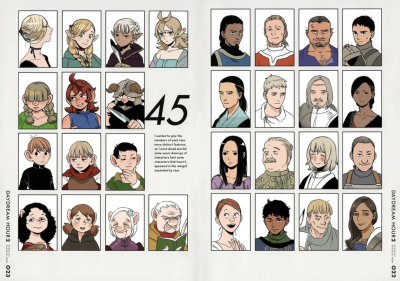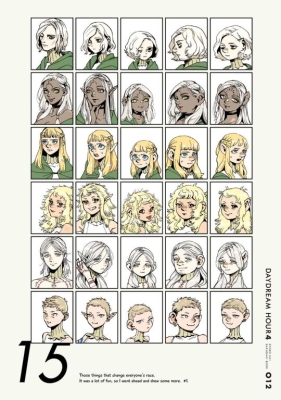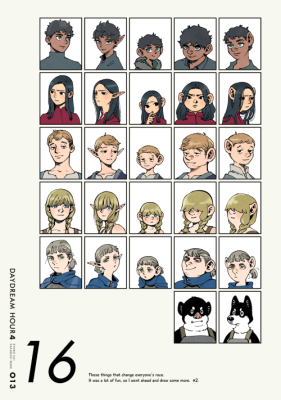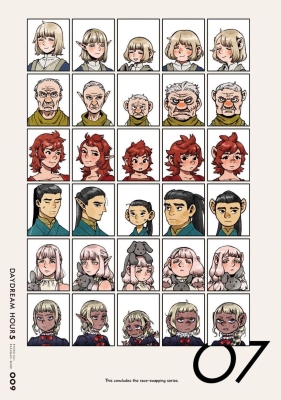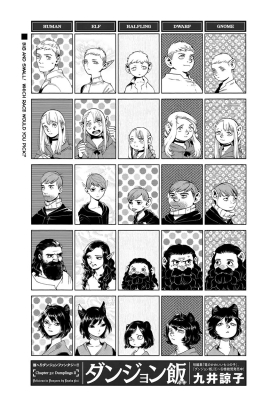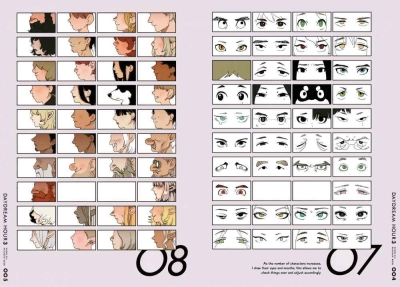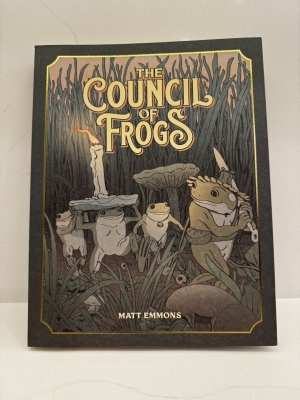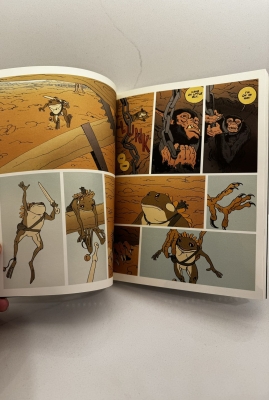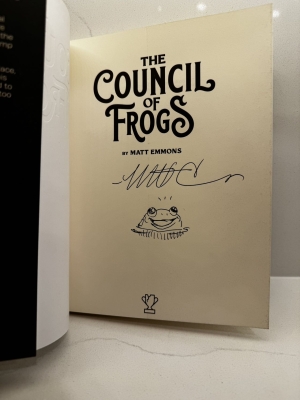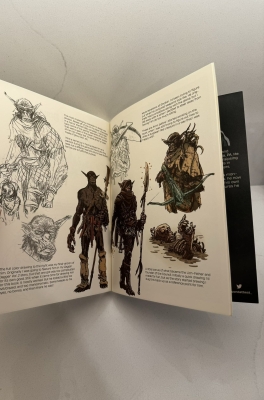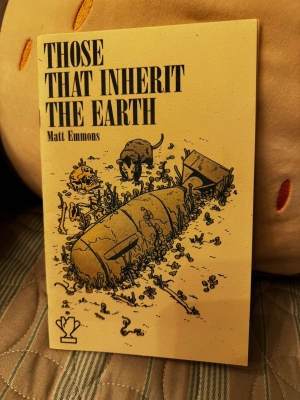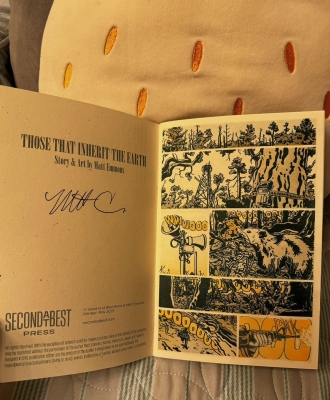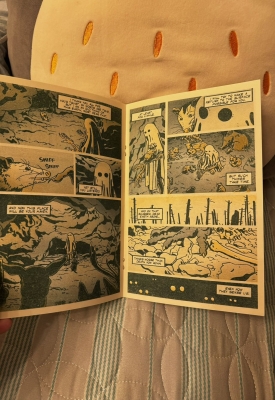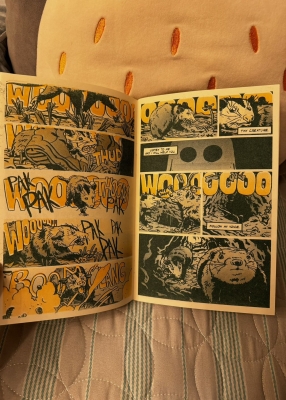Lindsay Wong has written this bizarre and deeply unsettling collection of stories based on the Asian immigrant experience. Completely surreal and unsettling, this novel had me rolling around in my bed in stress and curiosity from the insane twists that were happening. Definitely a multiple-sitting read again, as I've found it personally difficult to draw solid conclusions from the supernatural settings and characters within every doomed plot. No one ends up unscathed in Wong's mix of ancient Chinese myths and contemporary modern experiences, providing her sarcastic and humorous commentary on Chinese history - from the beauty standards, conflicting historical events, gender roles and expectations, and filial piety to name some. Deeply visceral and quite gory at times with the description, I personally enjoy gothic themes of body horror, but may advise those with a weak stomach to tread lightly.
I highly recommend this collection! I'll be including my thoughts on my favourite story below, so watch out for spoilers.
The one that the entire book is named after, Tell Me Pleasant Things About Immortality definitely has stuck with me even though I read it weeks ago. It tells the past of a flawed woman from centuries old China who achieves immortality through consuming the Night-Blooming Deathlily. Now falling apart and losing fingers and slabs of skin, she is rotting away as she presides over the annual gameshow-esque, televised eating of the deathlillies, where unbelieving socialites and selfish elites snarf down as many of the petals as they can before ultimately bursting blood from their eyesockets and passing away. Shuchan remains the only person to have survived for nearly four hundred years from this flower. In the 1600s, she and her three sisters are in a harem of an important noble. One of them was found to be cheating with a Turkish merchant, condemning all of them to execution. Shuchan manages to choose self-preservation and through rebel forces, survives and becomes the second wife of another noble who is obsessed with finding immortality. She follows him to the forest of the deathlily and is the only one who survives, becoming a national treasure in the 90s. It's the ending of this tale that is the most haunting. During her presiding over the annual festival, Shuchan loses it and begins to perform this grotesque dance, flinging her rotting body around and losing body parts like a pinata. She gets shoved from behind, causing her head to fall off and the last section of the story is how she is conscious of them turning her into a museum exhibit. A wig gets placed on her head, her skin glazed with chemical peel, and during the entire process, she is fully aware and forever will be in her glass cage. It was so bone-chilling to ponder this reality of immortality - the never ending perception of the ever-changing world around you, as your body decays and you become a mere object to display alongside pots and jars of ink unearthed from burial sites.
This year is coming to an end, and I want to prepare and share my list of novels that I want to read while cozied up on the couch this winter break.
The Employee by Olga Ravn - Millions of kilometres away from Earth, the crew of a spaceship are finding themselves becoming strangely attached through inanimate objects. I'm particularly interested in the structure of the novel, written through HR reports filed by the employees themselves.
Carnality by Lina Wolff - A Swedish writer on a trip to Madrid meets a strange man in a bar who shares the tale of a morally gray dark web internet TV show and an interfering nun who is missing her thumb.
The Woman in the Dunes by Kobō Abe - A teacher takes some time off work to travel, and enters a small village partly situated within a range of sand dunes. He asks for shelter for the night, and the villagers lower him into a deep, dark pit that is inhabited by a lone, friendly woman. In the morning, he can't escape as the villagers have trapped him to become her partner in endless moving sand so that the village does not get eaten up by the surrounding dunes.
Recursion by Blake Crouch - There is a branch of a condition known as False Memory Syndrome where victims are being plagued with memories of a past life they never lived.
How High We Go in the Dark by Sequoia Nagamatsu - A series of interconnected short stories about a climate-related plague that has decimated the entire world.
Media no doubt impacts our perspectives and tastes, as we naturally want to fit in and find recommendations and communities online to participate in. Booktok, a portmanteau of book and Tiktok, refers to the specific community on the app that is dedicated to reviewing novels and recommending to both new and experienced readers. Definitely something that I would have loved as a kid, I feel like a wrong turn has been taken, and want to reflect if booktok boom in popularity has done more harm or good.
I want to start off this reflection by saying reading is so important. As an English tutor, I've seen firsthand the impact that a loss of passion for reading can cause on writing and media analysis skills. Students often aren't as able to connect the texts they are assigned in class to news and other literature, as they just aren't spending the time consuming literary media. By making small conversation at the beginning of class, a lot of them are more interested in social media and gaming rather than taking the time to sit and read. The thing is, I can understand why! Games and their phones are brightly flashing, constantly changing, mindlessly entertaining methods of consuming. They are meant to attract kids and appeal to their attention spans greatly. I'm sure if the highly addictive media that is available today existed when I was younger, I would be in the same boat.
So this is exactly why I originally thought the booktok boom was going to be amazing. It would be making reading trendy and interesting again, and take down the notion that reading is nerdy. However, it's been taken in a direction that I think is causing its own harms. Some of the largest concerns are the mainstream and most popular videos harm on the same 30 romance novels, filled to the brim with unnecessary sticky notes and annotation, and people who own perfect bookshelves and an ever-growing stack of books that they don't read. I genuinely do not want to gatekeep reading as a hobby, as I want to discover more small authors and want others to find joy in this amazing and productive pastime, but it's clear that Tiktok has transformed reading from a hobby to a lifestyle. There are
people who read now, and as
Stephanie Danler writes in 2022, Tiktok is primarily an entertainment app that wants you to buy, buy, buy, and post, post, post. There is a certain connection to performance in reading now; coffee, tote bags, books on the subway, and hauntingly angsty beautiful women.
Continue reading "A Reflection on Booktok "
In honour of the recent finalization of Dungeon Meshi (Delicious in Dungeon), I wanted to reflect on this artistic masterpiece from Ryoko Kui. I could gush about her storytelling, composition, world-building, and fantastic character design for ages.
The story has a simple and hilarious premise based on the popular fantasy dungeon genre. However, Kui has changed it from just levelling up and fighting various monsters to a entirely different one - cooking the monsters after they've been hunted! We are thrown right into the heat of battling a giant red dragon, but our main cast is starving from losing supplies during their arduous trip. They're off their game and are losing to the fiery breath of the beast, before Laios is pushed aside by his sister, causing her to be eaten. The five remaining adventurers are forced to escape and leave her behind, but Laios is determined to head back down and rescue Falin before she is fully digested. Two members quit on the spot due to danger and the lack of payment, leaving Laios (human), Marcille (elf spellcaster) and Chilchuck (rogue halfling) to scramble funds together and reattempt the dungeon.
Food, however, is the most immediate concern. It's expensive and heavy to lug down, and so Laios comes up with the idea of consuming the monsters that they must slay anyways to advance, despite Marcille's immediate rejections. Their first measly attempt at cooking a small walking mushroom is interrupted by a dwarf, Senshi, who actually lives within the dungeon and is highly experienced with dungeon cuisine. The rest of the story is so well crafted as Kui weaves recipes, camaraderie, and worldbuilding together into an unforgettable tale.
Her character design is one of the strongest I've ever seen, and I'll include some images below of her work.
Continue reading "Dungeon Meshi - Ryoko Kui"
Cathy Park Hong has created certainly written unique memoir here. I really enjoy her combination of references to her own life experiences to the wider Asian American experience that she observes on a wider scale. There are so many quotes from this that deeply resonated with me, including the definition of minor feelings itself - "the racialized range of emotions that are negative, dysphoric, and therefore untelegenic, built from the sentiments of everyday racial experience and the irritant of having one’s perception of reality constantly questioned or dismissed."
A couple more that I still think about -
"One characteristic of racism is that children are treated like adults and adults are treated like children. Watching a parent being debased like a child is the deepest shame.”
"Asians lack presence. Asians take up apologetic space. We don’t even have enough presence to be considered real minorities. We’re not racial enough to be token. We’re so post-racial we’re silicon."
"“We keep our heads down and work hard, believing that our diligence will reward us with our dignity, but our diligence will only make us disappear. By not speaking up, we perpetuate the myth that our shame is caused by our repressive culture and the country we fled, whereas America has given us nothing but opportunity."
"When I hear the phrase “Asians are next in line to be white,” I replace the word “white” with “disappear.” Asians are next in line to disappear. We are reputed to be so accomplished, and so law-abiding, we will disappear into this country’s amnesiac fog. We will not be the power but become absorbed by power, not share the power of whites but be stooges to a white ideology that exploited our ancestors."
"I am ashamed of the anti-blackness in that Korean community, which is why I must constantly emphasize that Asians are both victims and perpetrators of racism. But even that description of victimization and incriminalizaton is overly simplistic."
The topic of identity and racism is often difficult to discuss, and can cause uncomfortable feelings to arise in participants of these conversations. It's nonetheless essential to recognize and ponder the multifaceted experiences that come with being a person of colour within North America. I personally think that Hong gives voice to some small, minor feelings that I have had when reflecting upon my Asian identity, as I spent a lot of my childhood in a predominantly white town. Though I was fortunate enough to never be bullied or shunned for visibly presenting as a person of colour, there were always off colour, stereotyped comments that rolled off my skin. It is an extremely common part of growing up Asian, and even when I got older, the off-colour comments became memes and jokes about "social credit" and "bing chilling".
Hong's verbalization of the strange dichotomy between how America treats the one-dimensional Asian identity - as tiger parents, math geniuses, hardworking owners of small nail salons and restaurants, suddenly crazy-rich, and the people responsible for COVID - with the intergenerational trauma and colonization that is deeply prevalent. Her background as a poet is so clear when she retells her personal experiences in a way that makes me feel as if I am there, vibrating with anger and thrumming with sadness when she remembers her grandma being bullied by neighbourhood kids for her bad English and witnessing the aftermath of the Delta Air Lines brutally dragging an Asian man off of his seat.
I recommend this novel for everyone, but I think those, like me, who grew up 2nd generation in North America, will resonate with it the most.
I heard good reviews about this book, with some even calling it their favourite novel series. The Goodreads also seemed promising, with 4 stars and a nominee for Best Young Adult Fiction and the Goodreads Choice Award. I was even intrigued by the premise, as the summary assured it was about humble and intelligent Avery, our main character, trying to solve the mystery of why she inherited billions of dollars from a man she doesn't know.
"To receive her inheritance, Avery must move into sprawling, secret passage-filled Hawthorne House, where every room bears the old man's touch -- and his love of puzzles, riddles, and codes," it says. As an avid fan of
The Genius Files and
Mr. Lemoncello's Library when I was younger, I was excited to have a more mature take on those unique puzzles for the reader to solve.
What I read was not even remotely what the novel promised. Sure, there was a mystery surrounding the fortune, but the vast majority of the book is concentrated on the petty interpersonal drama and relationships between Avery and the four mysterious brothers who are trying to solve the mystery of "Avery". One of them, the bad boy, even calls her MG, short for Mystery Girl, which I find to be quite cringe-inducing. None of the brothers are particularly interesting, rather it feels they have been written to fill a specific niche and capture the interests of the widest fanbase possible. They are all from different mothers, explaining how they all look different, and can be essentially reduced to; cowboy, smart mean one, bad boy, and little brother. There is no development or nuance to them, and they all seem to be relatively attracted to Avery in some way, lending a feeling of bad self-insertation to the story.
Continue reading "The Inheritance Games: The Only Thing Puzzling About It Was Why It's So Popular"
I recently visited FanExpo 2023 as Angel Devil from Chainsaw Man and was delighted to secure a signed copy of this charming fantasy graphic novel by Matt Emmons. His work has this beautiful graphite lineart, and retains a strong sense of colour scheme and composition in each panel.
Meeting him was such a fun experience! I stopped by his stall for ages and purchased this novel, along with a zine (coming in a post very soon), along with his witch sticker. My friend, who cosplayed Lara Croft, purchased a high-quality forest green beanie embroidered with an adorable frog. Emmons clearly has a strong sense of whimsy and knack for storytelling and character design - I was rooting for the little frog with his dandelion sword the entire way!
Here is the promised post of Matt Emmons's riso-printed zine!
Wow, this short story I seriously loved. Packed full of introspective lines about the resilience of the natural ecosystem paired with an incredibly unique take on nuclear dystopia, this sent me into a mild existential crisis about nuclear war and the end of the world. No spoilers because it's so short, but if you love opossums and detailed environmental art and feeling small in the grand scheme of the universe... then you gotta check this out.
His Insta is @second.at.best - definitely give it a look.
I picked up this collection of short stories when at a local book fair, and it's a three and a half stars from me. I enjoyed the vividly descriptive imagery and propulsory writing, however there is a significant lack of structure that I understand could turn some readers away. Unlike Neil Gaiman's collection of stories, which have a much clearer plot, these stories are more absurd and require more effort on the part of the reader to make sense of it and draw conclusions for themselves. Personally, I'm not always a fan of abrupt endings, as they feel unfinished and I think there could have been heavier emphasis on the connection between the human and animal body to the plots of the stories.
This collection is definitely supposed to read one-by-one and in multiple sittings, as they all offer little takeaways and fantastic scenes that will stick with me for a while. It will for sure take some time to dig for the meaning beneath the layers of dark humour, melancholy themes, imperfect characters, and surreal language, but ultimately very worth it!
When I bought this book a couple years ago from Costco after hearing good things about the popular TV show, it took me a while to get started and then I put it down. Something about how the style in which it was written didn't appeal to my then pre-teen brain, but I am so glad that I picked it back up again. It is wonderfully written and absurd, with multiple unique takes on famous religious and historical figures coming together into a chaotic ride.
Starting off strong with an iconic scene from the Bible, Crowley and Aziraphale are an devil and angel duo that have known each other since the very beginning of the world coming into existence. They are still working for their respective sides in the eternal war of heaven and hell, but they compromise and make it so neither can really claim victory. However, when the Antichrist is misplaced by the Satanist nuns that were supposed to raise him, this unlikely duo must find where he is before humanity is wiped out. Crowley especially likes humans and finds them interesting, even convincing Aziraphale to join him by mentioning all the things the angel loves that won't be around if heaven wins in this religious war - music, books, tea.
Something this novel truly excels at is weaving biblical events and characters into the modern day. Crowley, as a devil, is supposed to corrupt humans, as does so as a modern-thinking demon. Instead of his peers, who work by slowly chipping away one soul at a time, he shuts off telephone lines for 45 minutes and has interfered with blueprints to make motorways shaped into demonic sigils. The widespread anger he causes made me reflect on the new annoyances that we have to deal with compared to the struggles of those in the past. The way the Four Horsemen/Bikers of the Apocalypse are portrayed is so intriguing to me as well. War is a beautiful and dangerous red-haired woman that works as a journalist who can somehow know where conflict is going to happen with pinpoint accuracy. Her very presence causes conflict, as it's shown that the small island she steps foot on with a stash of weapons breaks into civil war and she's able to sell all those weapons to the people. Famine runs successful fast food chains filled with empty calories, and publishes diet books for models and celebrities that almost kill themselves to get the perfect body. Pestilence, or Mr. White, is a forgettable cog in "fool-proof" disasters like oil-spills and Chernobyl, slipping away after doing his work and taking on a new job quickly to cause more harm. And Death is well, everywhere.
Layered with absurd conspiracies from the imagination of the Antichrist taking physical form, the witches and tunnelling Tibetians only add to the crazy ride this novel takes you on.
As everyone knows, artstyle is incredibly important to me, and Hell's Paradise truly has one of the most eye-pleasing. Based in a fictional historical past, Gabimaru the Hollow is sentenced to death for his many assassinations, but is unable to die due to his superhuman body. He claims to have nothing to live for and is deeply haunted by his past, but we soon find out that he truly loves his wife and wants to come back to her. So, his executioner, Yamada Asaemon Sagiri offers him a chance along with other death-row criminals; find the elixir of life on the fantastical and legendary Shinsenkyo and be pardoned by the Shogunate. These convicts must return with their Yamada Asaemon executioner to claim their freedom.
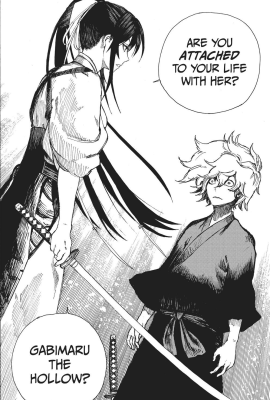
The cast of this story are uniquely refreshing, as personally, I've observed a recent uprising in the manga environment of bland characters put into a decently interesting plot and environment that has seen success before - hoping to cash in on whatever is popular at the moment. I am very glad to see that not only is the characters varied and have intense personalitie. The intriguing death-row criminals and their matching executioners creats a hilarious contrast that can't really be found anywhere else, and the relationships that develop and break from the crazy environment they are thrown into renders your heart into shreds.
It's the worldbuilding that stands out the most in this series, as Shinsenkyo is deeply rooted in mystery and has never seen any human return alive.
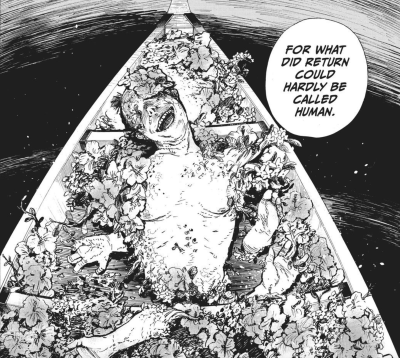
The body horror within this is so chilling, and I especially love gothic media like this. Though gory, it's never gross for the sake of shock value, rather it always is purposeful to show the brutality of the setting they are trying to survive in and the disparity between what the death-row convicts think their skill level is and what they actually can achieve.
Considered a classic, Catcher in the Rye is often read in English class and revolutionary in how it begin conversations about adolescence and deconstructing the narrative of "boys don't cry". I personally did not like the plot or Holden, but recognize why the story itself made a profound impact on some and enjoy the conversation it sparks about the fear of growing up.
Holden is endlessly complaining about all the people around him, often calling them "phonies" and lashing out, yet still yearning for real human connection. He is going through the loss of his brother and his rebellious and strange actions can be seen as an emotional response to being deeply hurt on the inside. It's clear that he is depressed, lonely, scared of the future, and cares for his family - all qualities that make for an interesting and tragic male lead, but I seriously cannot get over how contrived and bland the plot is. He criticizes his classmates at school, runs away, messes around the city for a while, and tries to talk to multiple girls before ultimately failing and running away again. I enjoyed the part where he cares for his sister, but it's heavily outweighed by the amount of time he is just escaping his problems through drink, attempting to talk to women, and crashing in random places.
I understand how his character can be relatable, after all, who isn't afraid of growing up and who doesn't feel like the people are surrounded by are fake? The societal expectations of having a family, job, and being put together leads many adolescents to fear for the time when they will be out of style and forced to join the corporate machine, while adults already within those spaces are feel unable to express their authentic selves. I think the point of the novel is to be from a confused, hurt teenager's point of view, but as a teenager who does feel worried about my future and wants to return to childhood, it still doesn't make up for the fact that I just did not enjoy the writing or the plot. To me, Holden's repetitive tonality and hypocritical nature ruined any relatability or positive feelings I had towards the novel.
Ultimately, out of the context of the story, the theme and message can be appealing, but the way it is executed did make me put down the book many times before forcing myself to finish it. His average, unremarkable days slog together into one dull, gray slush, and his inability to express himself out of his little catchphrases make it so impossible to enjoy.
Set in the near future where a cure for aging has been discovered and is made available to people worldwide after protests wrack major cities. However, the world has developed new unique problems of a disturbing new religious cult, government euthanasia programs, and even evil green people.
Told through a series of posts for a blog (hey, that's me!) or an online journal, John Farrell is a lawyer that takes the cure for death and witnesses the sixty-year period that followed the cure for aging. In my opinion, a lot of the horrors that Magary is able to bring to the table are deeply haunting and realistic, leaving the reader to be taken aback and ponder the unique premise. However, where the story falls slightly flat is how most of the main characters lack personality. To some degree, I understand this angle the author has taken, as it offers an opportunity for a decently neutral observer of the newly immortal world. John doesn't really do anything insane like most would upon receiving his prolonged lifespan, with the most memorable change he made in the beginning of the novel being that he doesn't get married to his girlfriend, Sonia.
This takes the novel in a direction I didn't think of at all - how will this complicate relationships as there is now infinite time? Sonia wants to get married, as she has invested four years of her life into this relationship and wants to spend the rest of their life together, but "rest of your life" and "till death do us part" doesn't have any meaning anymore. As John says, "A man in my office got engaged three months ago, and all the other men laughed at him. Every guy is supposed to be some macho, eternal bachelor now." He emphasizes that if they hadn't taken the cure, then he would be happy to settle down with her, but the fear of finding someone before it's too late and they're too old is gone now. Sonia makes the valid argument that marriage has always been about trusting the other person to stay with them no matter what. John had no answer to this, and offers one of the contracts that his firm has drawn up - a new type of prenuptial agreement of 40 years of marriage set in stone, with the opportunity to renew at the end of the time or dissolve the connection without any consequence. Obviously, Sonia turns this down and leaves him to be the eternal bachelor he wants to be.
The real horror comes from the events occurring in the wider world. News snippets are inserted at the beginning of chapters, allowing the reader to peak at what is even happening outside of John's perspective. I'll include some of the most thought-provoking in the extended body and more commentary on some spoiler-heavy parts of the novel.
Continue reading "The Postmortal - Drew Magary : How a Main Character Can Ruin Your Story "
Seeing this book on sale at the local second-hand bookstore and picking it up for a couple dollars to see what I missed out on when I was younger, I was thoroughly appalled that this has a hefty amount of following instalments and that so many young teen girls are still reading this.
The basic premise is another twist on the classic fairytale ideas, however unlike Hero's Guide to Storming the Castle, the characters are irritating, cruel, and shallow, leading to an annoying reading experience. On one hand, I know I shouldn't expect children's novels to be incredibly thought provoking, however I challenge that idea as much of the fiction I read when I was younger I still enjoy to this day. Percy Jackson, Artemis Fowl, Mysterious Benedict Society are just some of the names I can immediately pull from my mind about stories aimed at teens that covered a wide range of topics with deeply enthralling and likeable characters. The School for Good and Evil is thought provoking in a negative way; i.e. should this even be recommended to young readers?
I take a strong issue with the message of the novel. I think the author wanted to emphasize the strange double standard between how "beautiful" characters are automatically associated with goodness and "ugly" characters are perceived as evil. Physical looks are an extremely large part of this story, with our main characters constantly commenting and observing how those around them look. Sophie, the conventionally attractive blonde, has wanted her whole life to be recruited as a princess and wants to escape her crass family. She wishes for ages to be taken away and performs all sorts of charitable deeds in an effort to be perceived as kind and princess-like. Agatha, who Sophie looks down for since she doesn't take care of how she looks, is shunned as the child of the local witch and only has Sophie and her black cat as a friend. Sophie insinuates that she only befriends her as an act of charity, but Agatha cares deeply about their friendship.
Eventually, when Sophie gets taken away by skeletal dinosaur birds to the School, Agatha tries to stop them and gets carried along, before being dropped into the opposite school than expected. Sophie lands headfirst into the School for Evil and Agatha is gently placed in the School for Good. Obviously, S throws multiple tantrums and refuses to believe even until after the end of the novel that she doesn't deserve a place as the good one, because since she's so beautiful and Agatha is so not, there is obviously something wrong.
I think the story is trying to get at the message that looks are not indicative of one's moral character and personality. However, all this goes out the window when during the final battle, the two schools are fighting each other, and since "good" attacked the other side first due to a misunderstanding orchestrated by Sophie, they switch and suddenly the "evil" people become conventionally attractive and the "good" people lose all their conventionally attractive features. This is so wrong on so many levels. Not only does it completely go against the original decent message of the story, it further reinforces the stereotype that it was trying to debunk. Not to mention, this theme is so heavy handed that each school has classes dedicated to "smiling" and "how to be beautiful", along with "uglification". The conventional, shallow, and frankly childish perception of these terms is deeply concerning to see in a novel directed at an audience of teen girls.
Furthermore, a large part of the story is dedicated to men, being infatuated with them and letting them dictate social order and personal happiness. S is obsessed with Tedros, the most popular boy in the School for Good who is incredibly rude to A and often makes derogatory comments towards her. Every other "good girl in the story seems to have some life-ending interest in men. There was space for commentary about how society often pushes women to believe that they need a partner to be truly complete, however, the novel starts building a relationship between A and Tedros, demonstrating to the impressionable teen audience that it's totally fine to forgive someone who was incredibly rude to you, since he's a prince and you're a girl that needs a guy like him.
S uses A as a personal foot wipe so many times and yet, A always comes back to save S in times of need when S never cares to do so. I understand how part of it is to show how truly "evil" S is despite her outward appearance, but it makes the idea of "good" appear to be letting the people around you walk all over you and to forgive them each time. To S, their friendship is a tool to achieve the means that she wants, while A taking on the role as the helper friend is portrayed as the kind thing to do. The book is never able to truly separate "good" from "beautiful" and "evil" from "ugly". The lessons being derived from this book are truly appalling and shallow and I hope that teens find other fiction to obsess over.
Wow, just wow.
I don't even know how to describe this insane trip of a story. Though I'm still in the reading process for it, I have to share this manga and rant about it here.
Set during the early 20th century during the gold rush in the aftermath of the Russo-Japanese war, Saichi "Immortal" Sugimoto is looking for money after being discharged from being a soldier after killing one of his superior officers. On the battlefield, he fought like a demon, getting up after normally fatal injuries and continuing on. His ferocious stamina earned him the nickname, "Immortal Sugimoto". When panning for gold in an attempt to make a lot of money fast, a villager tells him about a old tale that circulates around the region of Hokkaido Island, where they currently are. During the initial flood of the gold rush, where people could find pieces of gold as big as beans and coins in the river, the native peoples of the Island, the Ainu, collected a huge amount of it to fight back against the Japanese government who had stolen their land and banned them from performing their traditions and way of life. Then one man stole everything, killing everyone in his way, before getting caught and put in prison. The criminal wanted to tell his friends on the outside where the gold was stashed, but was under rigorous check-ins by the guards, so his solution was to....
tattoo the prisoners' bodies within that cell with the information necessary to find the gold. To avoid being caught or decrypted by anyone else, these tattoos only make sense when combined. The money is necessary, as Sugimoto's childhood friend passed on the battlefield with his last wish being that Sugimoto has to return home to protect his wife and kid.
Sugimoto has to embark on a journey across Hokkaido to hunt down the escaped prisoners with a young Ainu girl looking for her father who was a victim of the murders, learning about native foods and culture along the way. This story is intensely well-researched, brimming with tidbits of historical knowledge and Ainu culture. It plays with your emotions, shooting from hilarious scenes to emotional lows, with such interesting characters based on historical figures the time and legends from the Russo-Japanese war. I've truly never read anything like it and highly recommend it to anyone who's looking to learn, laugh, and clench in fear from the wonderful storytelling. There never feels like filler, instead there is a smooth mix of action and side quests, forming a crazy story that makes you sound insane when you're trying to describe it. This experience is one-of-a-kind! Please read!
